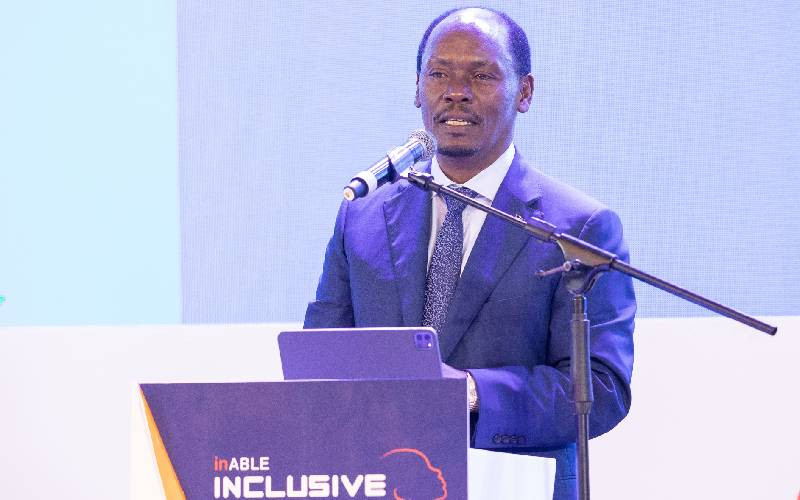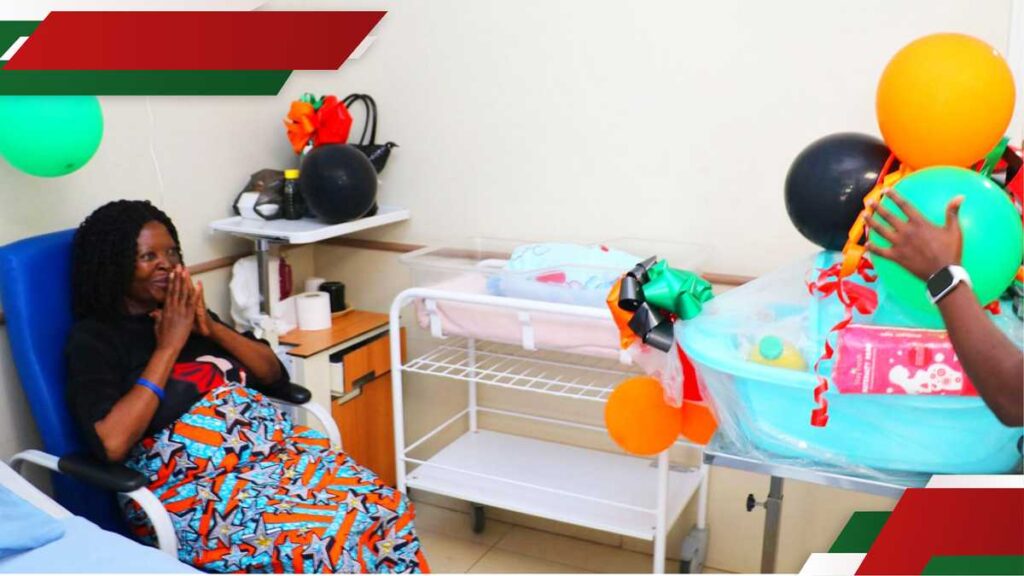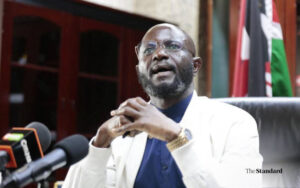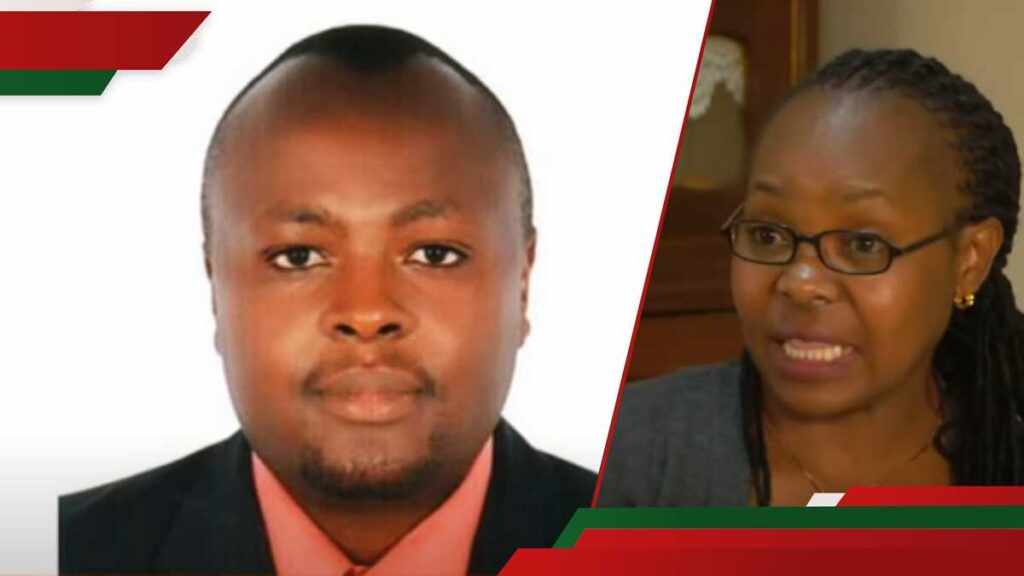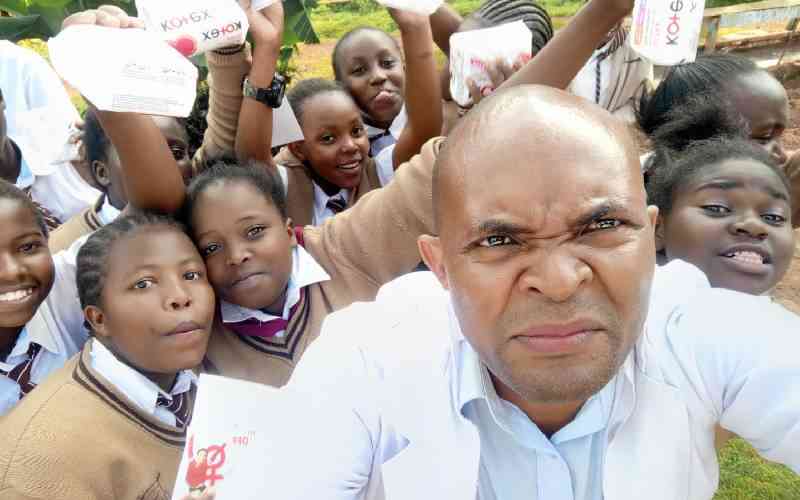ICT and Digital Economy Cabinet Secretary William Kabogo now says persons with disabilities have a right to access online services.
Speaking at the official opening of the 6th Inclusive Africa Conference, held in Nairobi, Kabogo said digital accessibility is not a luxury but a right and an essential pillar of Kenya’s national development.
The 3-day Inclusive Africa Conference is dedicated to advancing digital inclusion for persons with disabilities, with a strong emphasis on making financial services, education, skills development, employment, brand communication, and transportation more accessible.
It also explores the transformative potential of artificial intelligence as a catalyst for inclusive innovation.
The conference further aims to bring together key stakeholders, including government, industry, and civil society, to collaboratively develop a joint roadmap for the accelerated implementation of the Persons with Disabilities Act 2025, with digital inclusion at its core.
While reaffirming the government’s unwavering commitment to actualising this reality, Kabogo said the government has embarked on a plan to ensure the more than 33,000 government services that are already digitised on Ecitizen are fully accessible online for persons with disabilities.
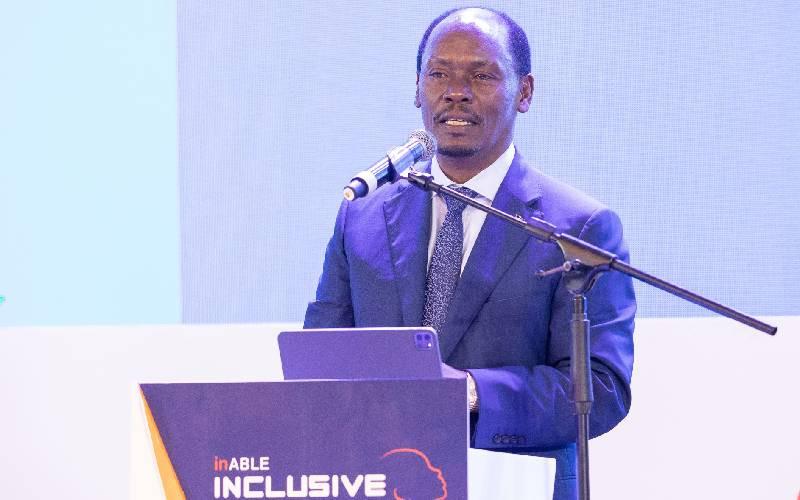
According to him, the ICT Ministry will partner with innovators, leading global technology companies, and organisations representing persons with disabilities to drive forward Kenya’s digital accessibility agenda.
Central to this effort, he said, is the implementation of the Accessibility Standard for Digital Products, which is already transforming how organisations design and deliver digital services.
“We are determined to equip at least 20 million Kenyans with digital literacy skills by 2027, including individuals who are blind, deaf, or living with mobility, cognitive, or learning disabilities,” said Kabogo.
His sentiments were echoed by Joseph Motari, Principal Secretary for Social Services and Senior Citizen Affairs, who also reaffirmed the government’s unwavering commitment to accelerating progress toward universal digital inclusion.
“Our priority is not only to bridge the remaining gaps in both physical and digital infrastructure, but also to leverage emerging technologies and cutting-edge assistive innovations,” said the PS.
Mr Motari said that through these efforts, the government aims to empower persons with disabilities in Kenya to lead independent, productive, and dignified lives, fully participating in every aspect of society.
Stay informed. Subscribe to our newsletter
Government Spokesperson Isaac Mwaura, in his remarks, affirmed Kenya’s position as one of Africa’s most progressive nations in advancing the rights of persons with disabilities.
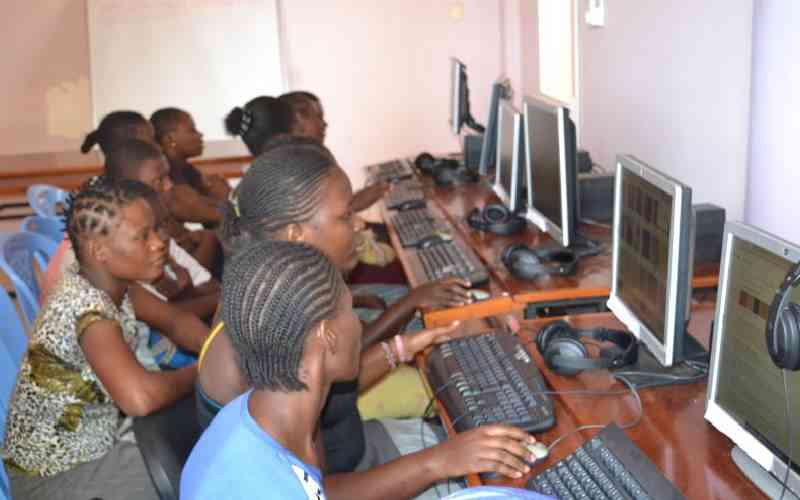
Mwaura said the 2010 Constitution guarantees their rights and ensures access to employment and government procurement opportunities.
“To further promote inclusion, my office will soon launch an Inclusive Communications Program to make Government communications fully accessible and responsive to the needs of persons with disabilities,” said Mwaura.
Irene Mbari-Kirika, Founder and Executive Director of inABLE, who are the organisers of the conference, emphasised that digital accessibility is not a one-time fix, but an ongoing, evolving process that must be embedded from the outset and throughout every stage of the product development cycle.
She called on developers and owners of digital products and services to prioritise accessibility as an integral part of design and innovation, ensuring that no person with a disability is left behind in the digital age.
In her remarks, Dina Randrianasolo, Director of Strategic Partnerships & Innovation at the Mastercard Foundation, said that digital accessibility is fundamental to education, employment, and the full participation of young people across Africa.
“More than 135 million people on the continent require assistive technologies ranging from screen readers and mobility aids to hearing devices and accessible software, yet only 3 per cent currently have access,” she noted while underscoring the urgent need to accelerate digital inclusion efforts.








